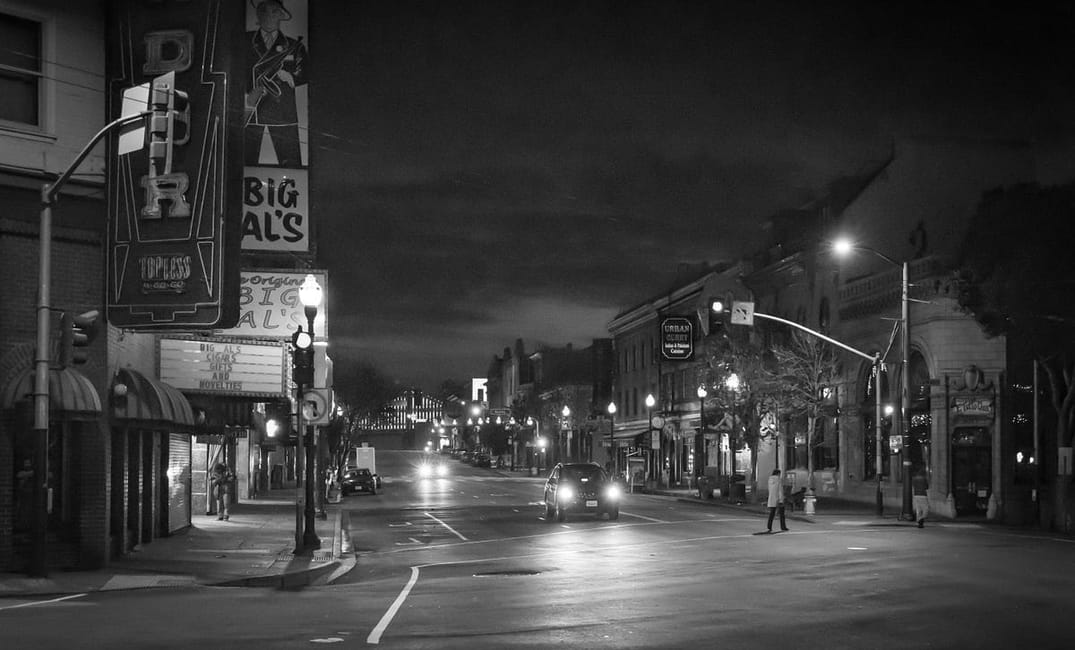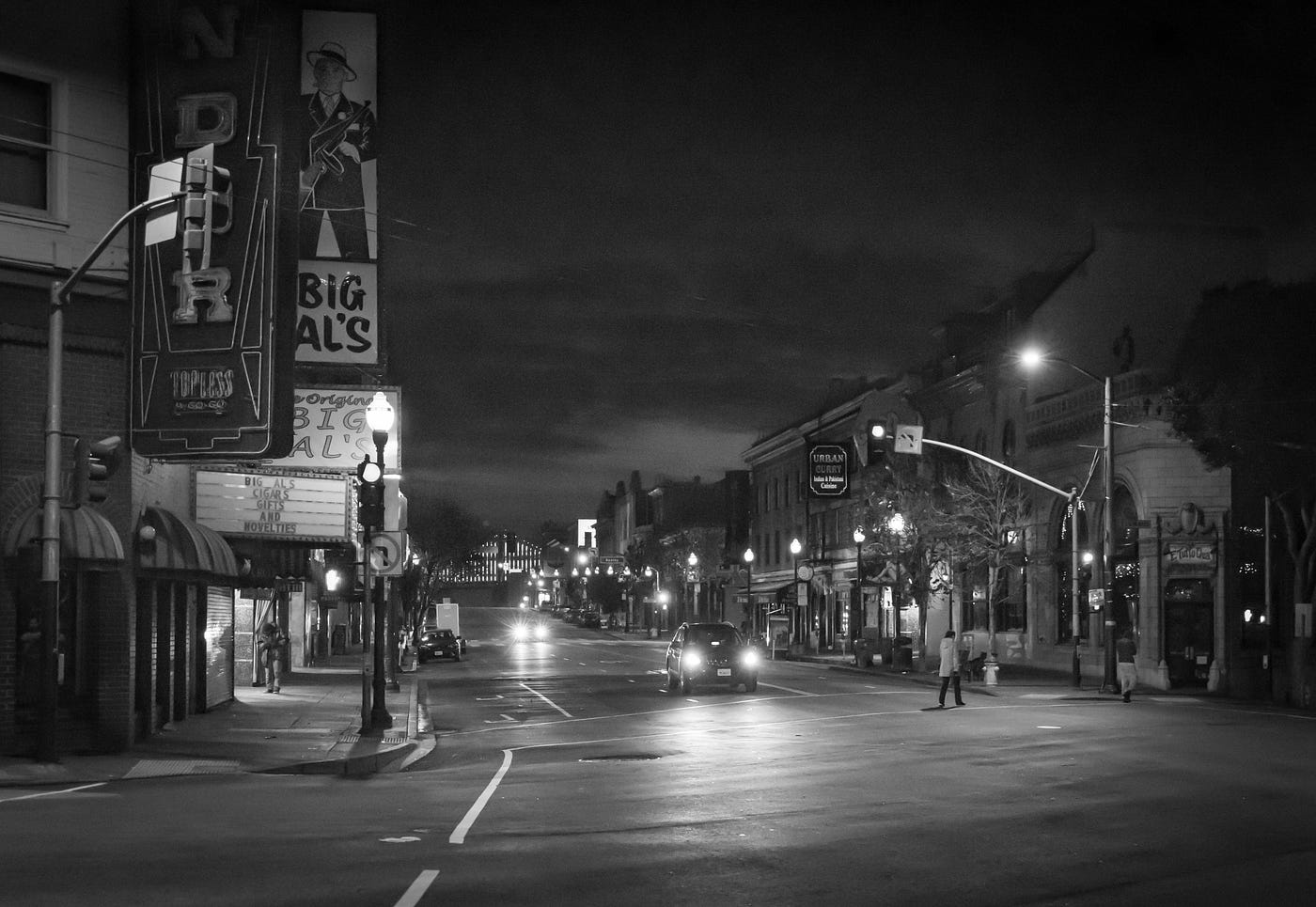
The Condor Club is asleep — like its avian namesake, an endangered species hanging onto a bygone era. With dawn an hour away, North Beach is still in a slumber, dreaming of beatific, upbeat days.
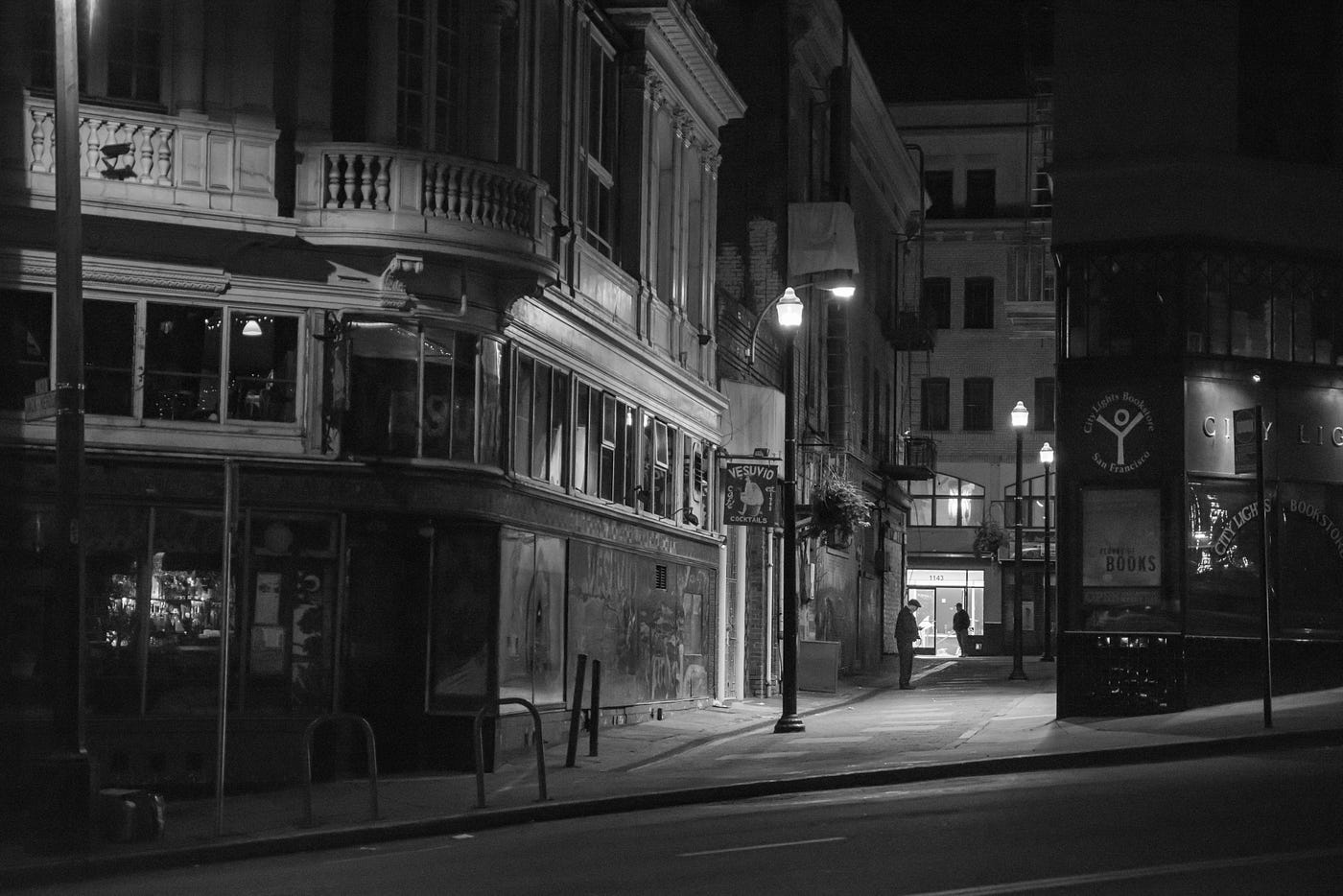
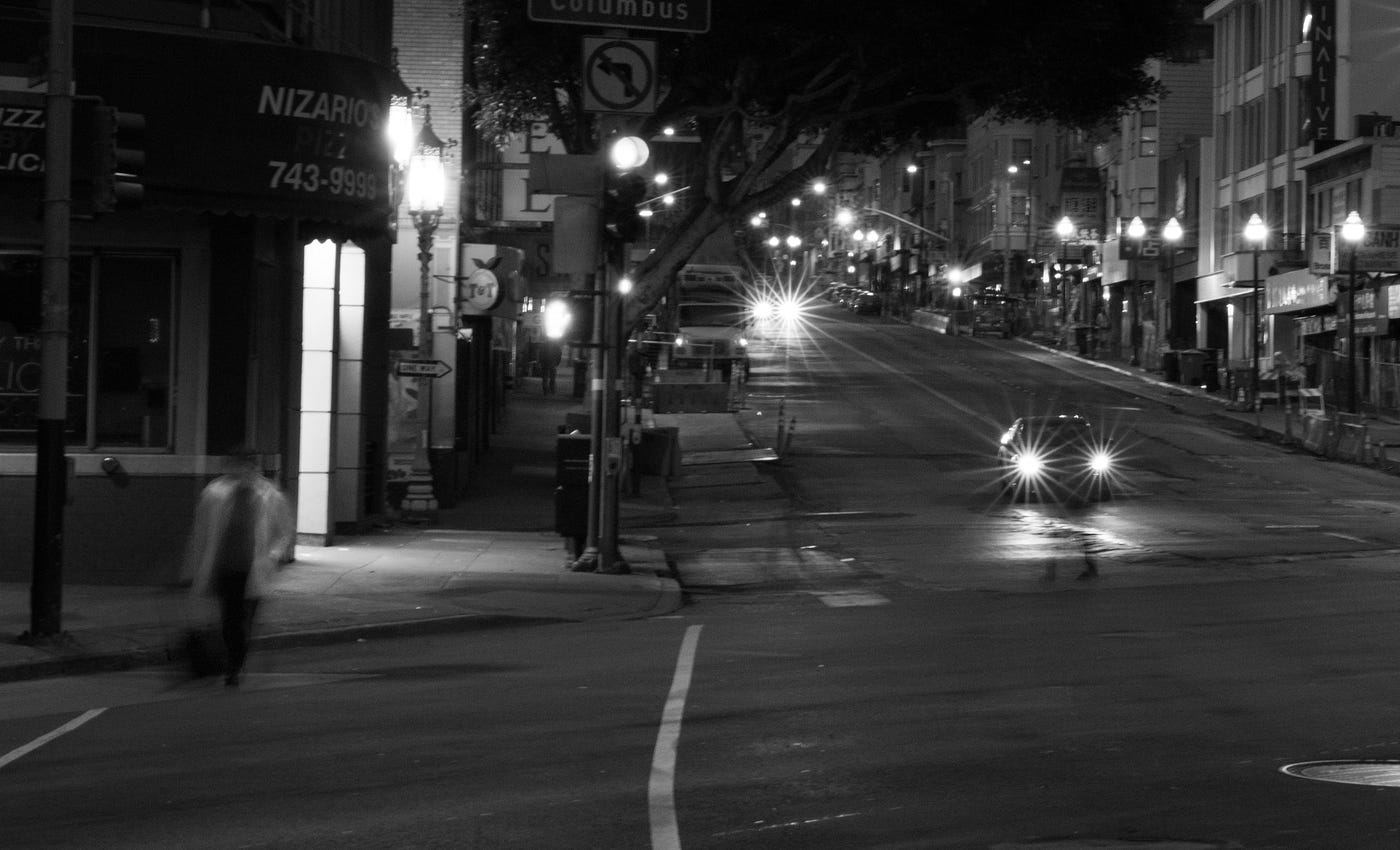
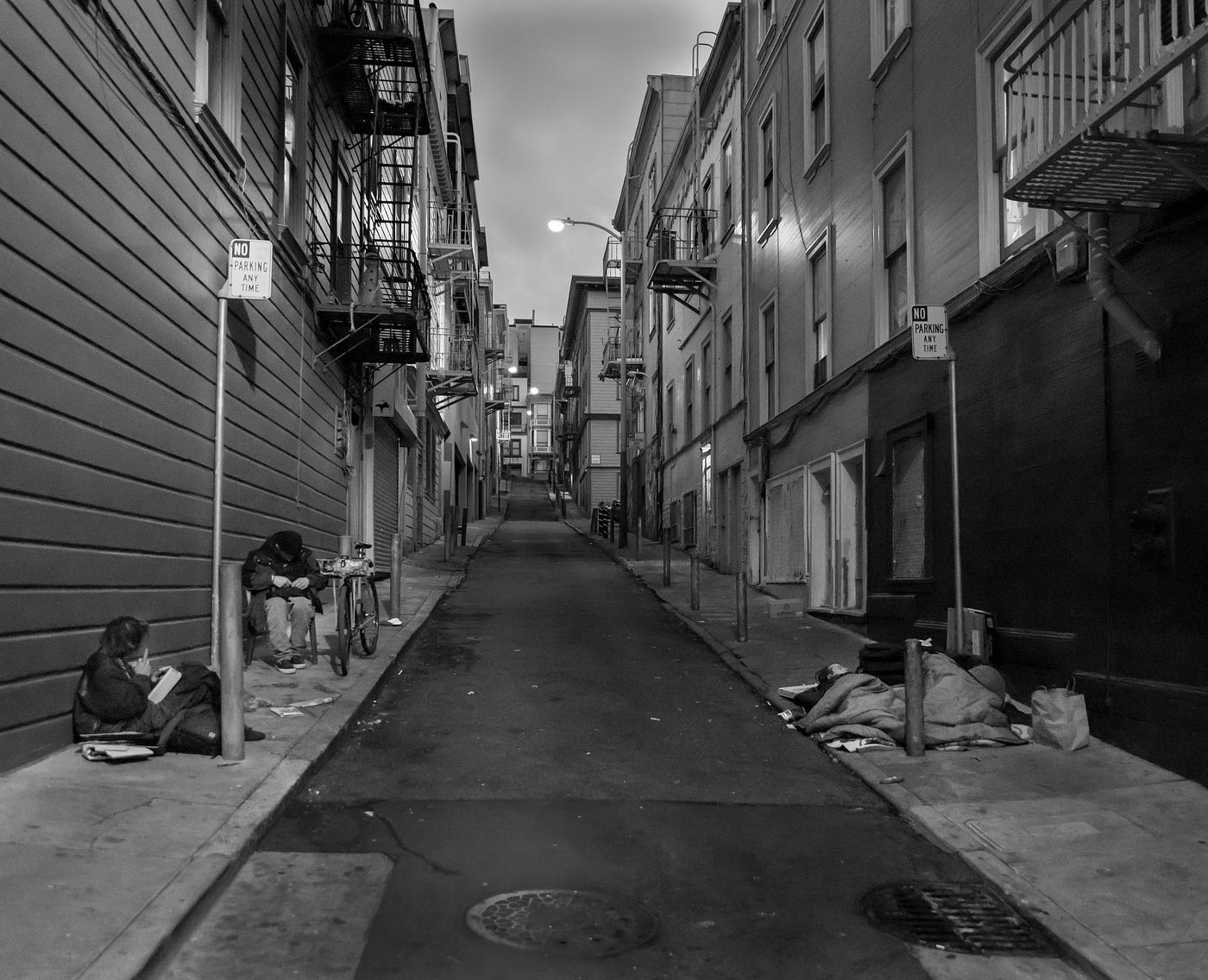
Near the corner of Broadway and Columbus, Vesuvio Cafe lies a few steps across Jack Kerouac Alley and City Lights Bookstore. The tired ghosts of Jack Kerouac, Allen Ginsberg, Lenny Bruce, Carol Doda and Enrico Banducci are wandering the sidewalks, inhabiting the dreams of the hapless homeless, a newer beat generation, beaten down by malevolent forces no one cares about.
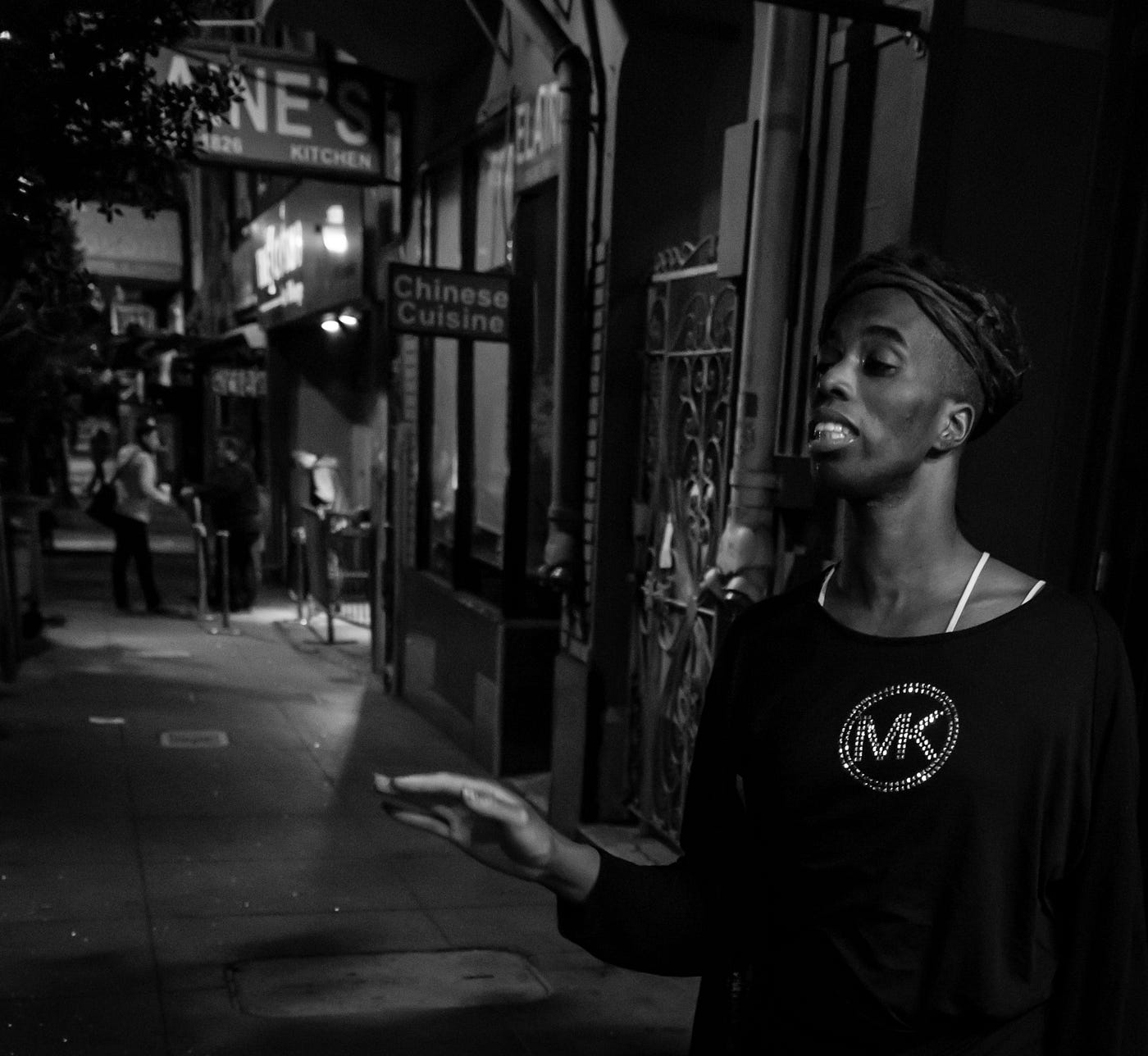

While the ’hood sleeps, a police car pauses at a red light, two cops surveying the empty dreamscape for any dark forces that threaten the Garden of Eden. An empty Muni bus rushes west through the Columbus and Broadway intersection, passing a few oncoming cars on its way through the Broadway tunnel.
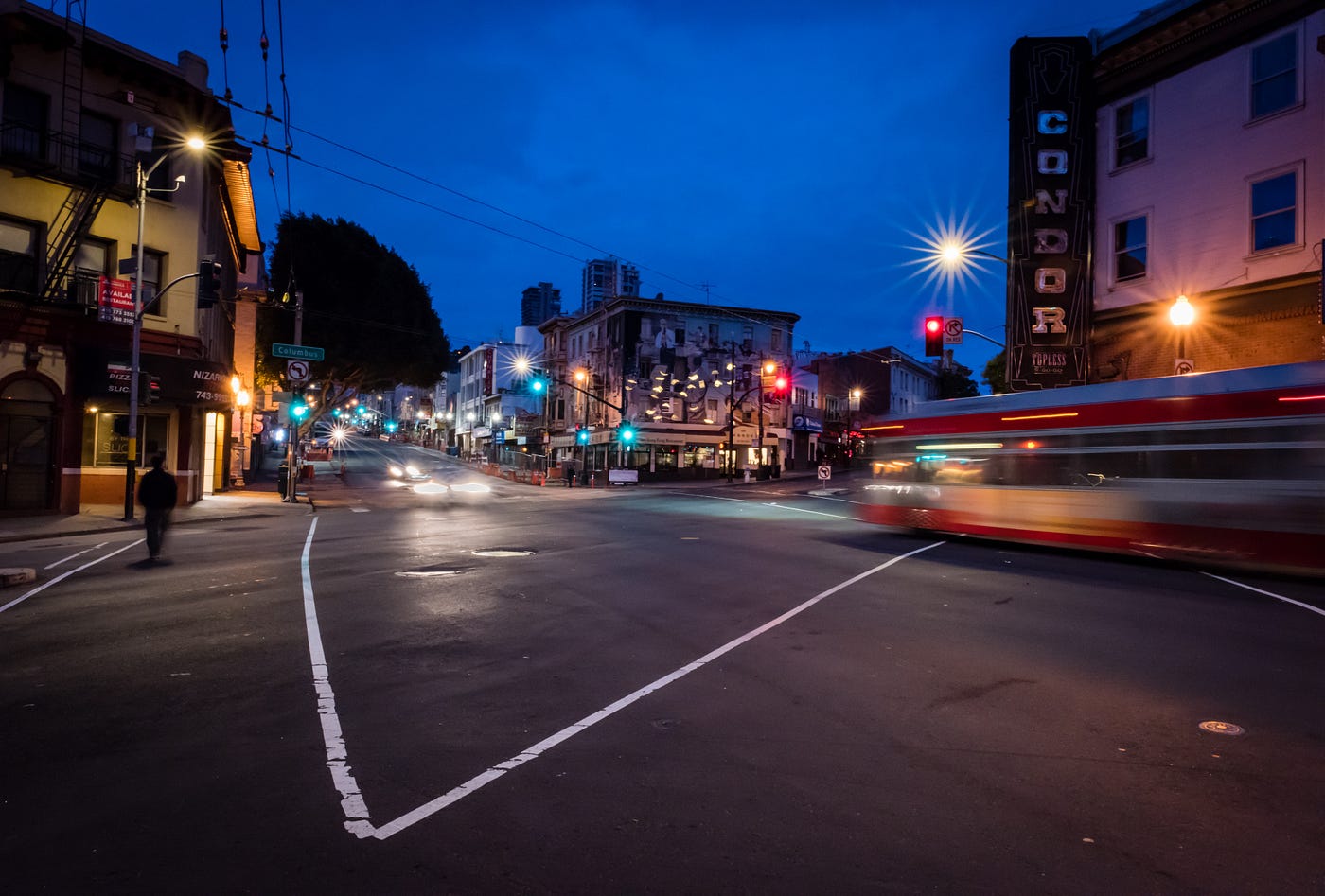
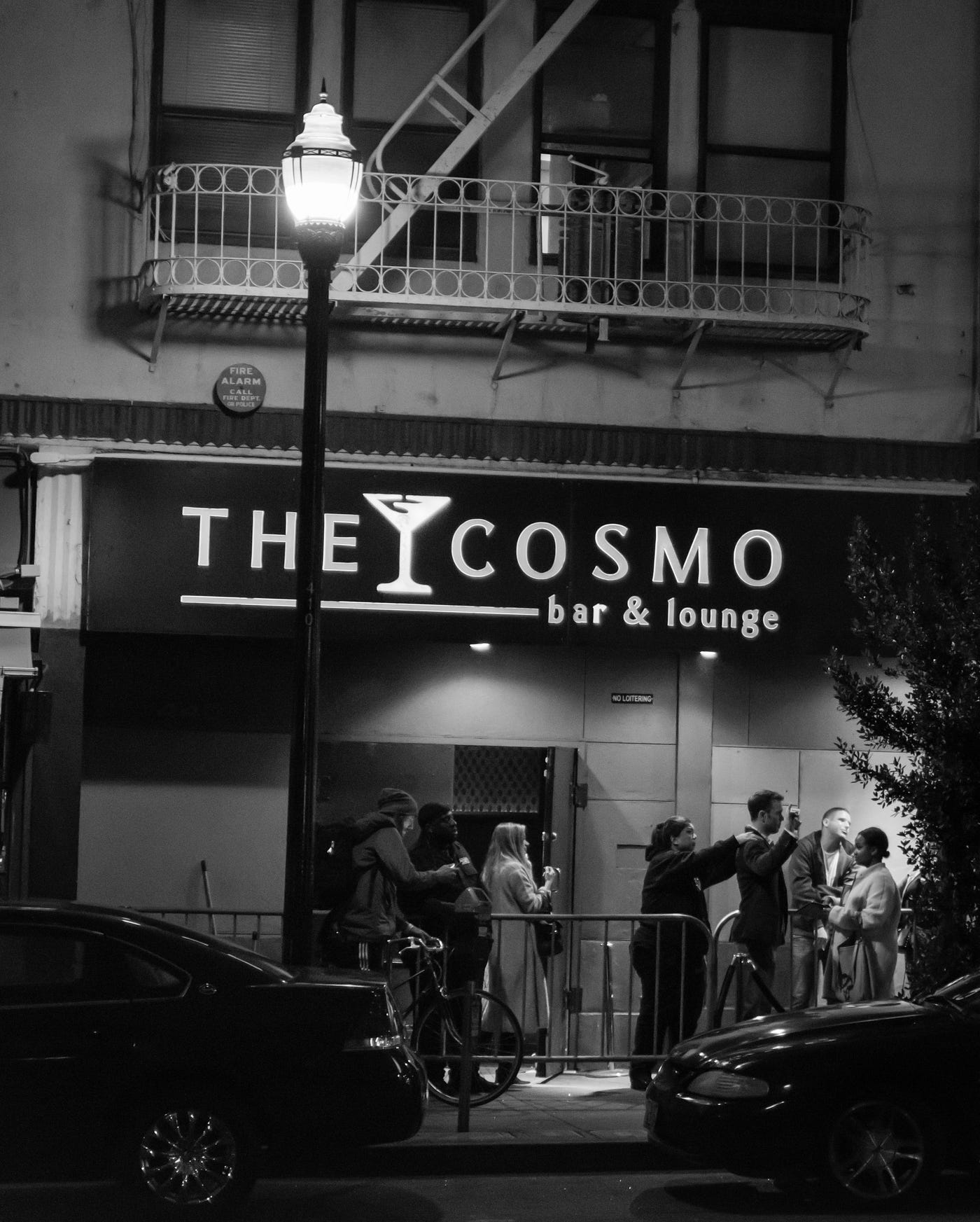
On Broadway, a few early-morning revelers are getting a head start on the weekend dance scene at the Cosmo Bar & Lounge, where the party starts at 6:00 a.m., but not without a thorough body search before entering the club.
As I walk past the night club’s security guards, one of them eyes my camera, confronts me in a suspicious voice and asks, “What are you photographing?”
“Oh, I’m just shooting the neon sign,” I said with an innocent half smile, pointing to the bright marquee overhead. I walk confidently past the guards, acting as if I belonged here.
After all, how were they to know North Beach was where I was born and raised? During the early ’60s, Broadway was my playground, where, in my early 20s, I spent many Friday and Saturday nights club-hopping, twisting and turning the night away, and keeping time with improvisations of jazz and comedy.
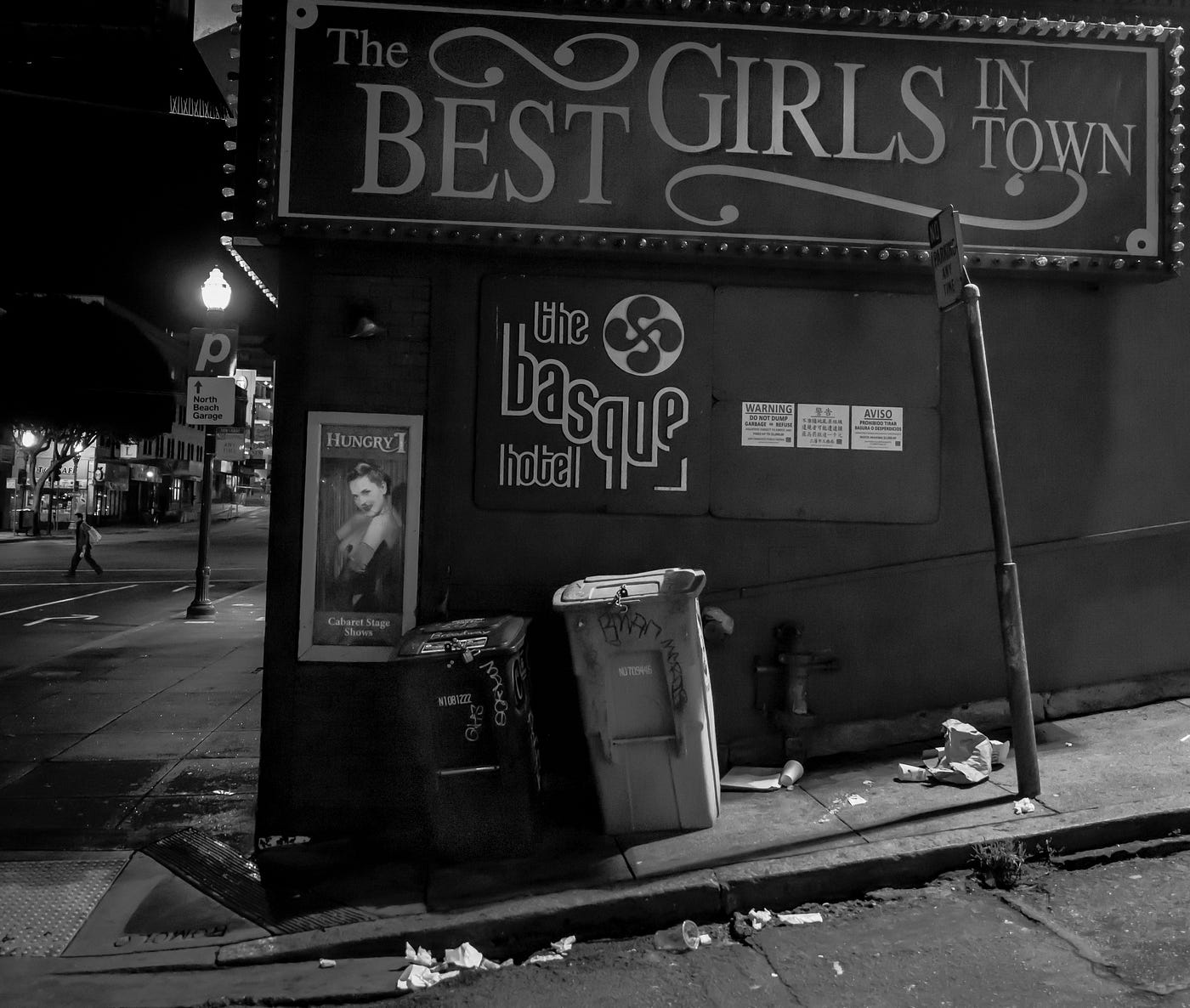
Still not fully awake from an early rise, I continue walking on Broadway, past the Hungry I Club (not the original one). On the side of the building’s wall, a sign promises that the best topless girls in town will titillate you — perhaps after a modest dinner at the Basque Hotel & Restaurant above the joint on Romolo Place.
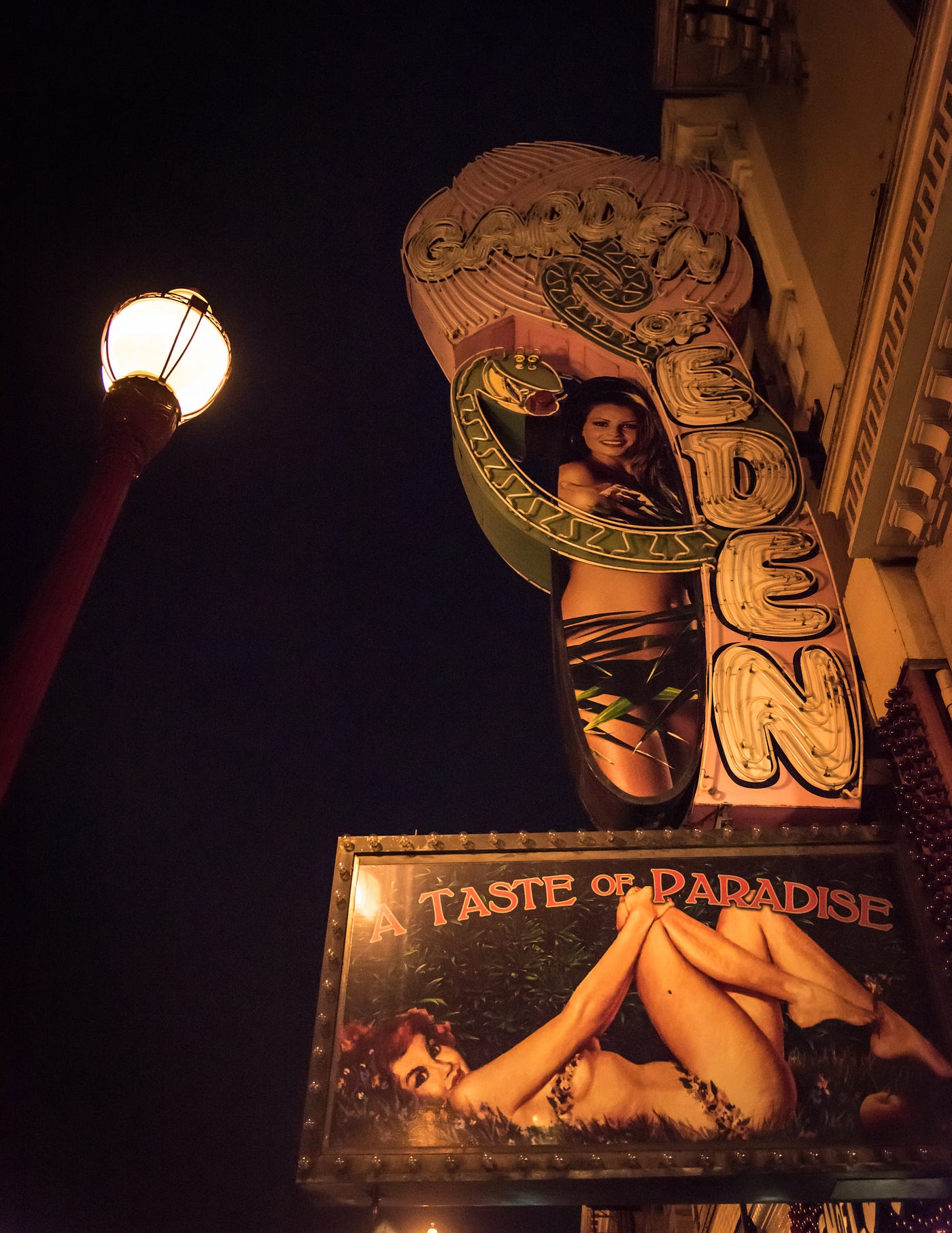
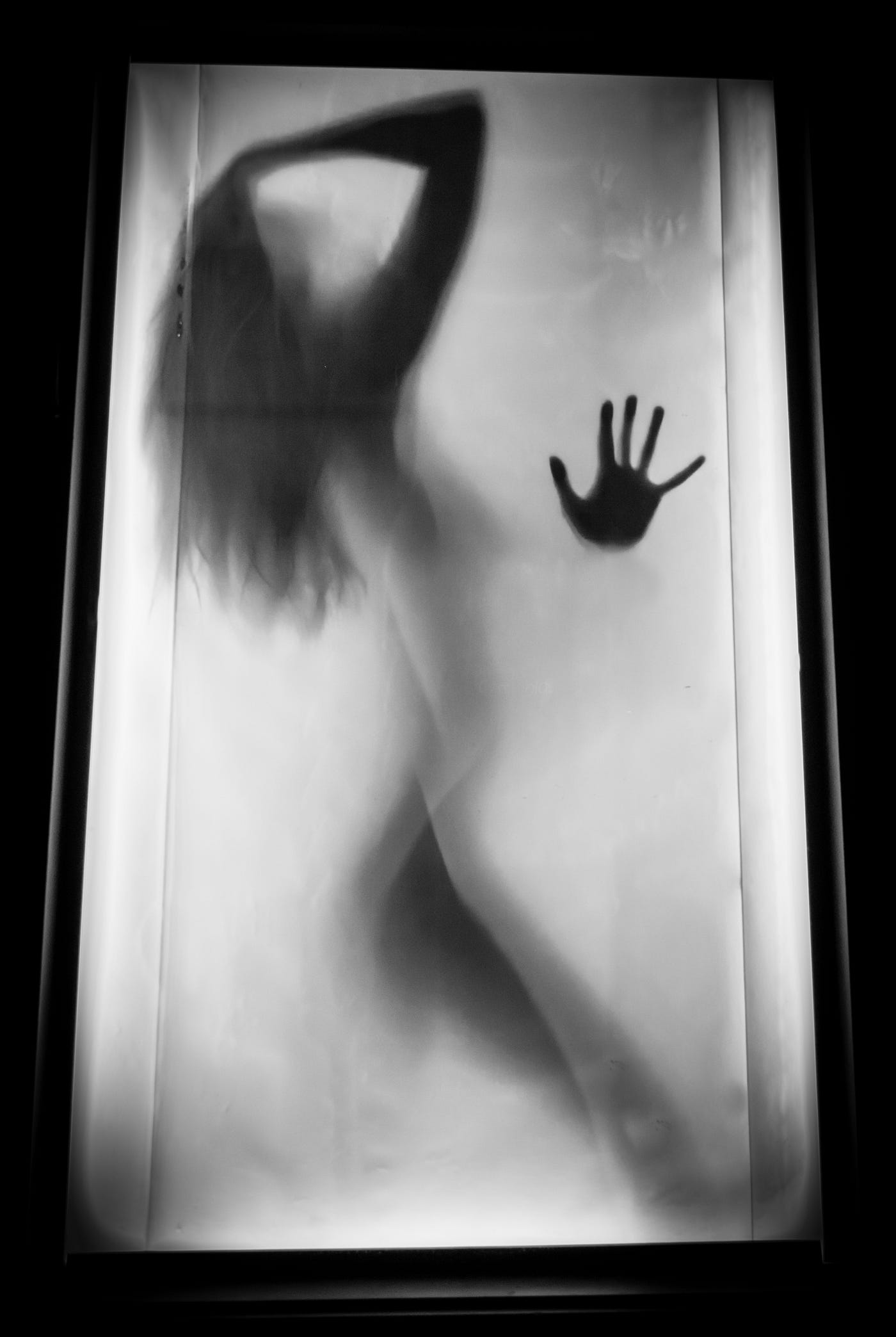
A short walk up Columbus Avenue, east from Saints Peter and Paul Church at Washington Square, Broadway’s neon-lined stretch of nightclubs and strip joints has always been San Francisco’s center of debauchery. During the late 19th and early 20th centuries, it was also known as the Barbary Coast, one of the city’s infamous red-light districts, home to brothels, dance halls, concert saloons, bars, jazz clubs and variety shows — some featuring female impersonators as well as homosexual services.
If you listen carefully, you can hear applause and laughter from stand-up comedians, folk singers and jazz musicians improvising and taking five.
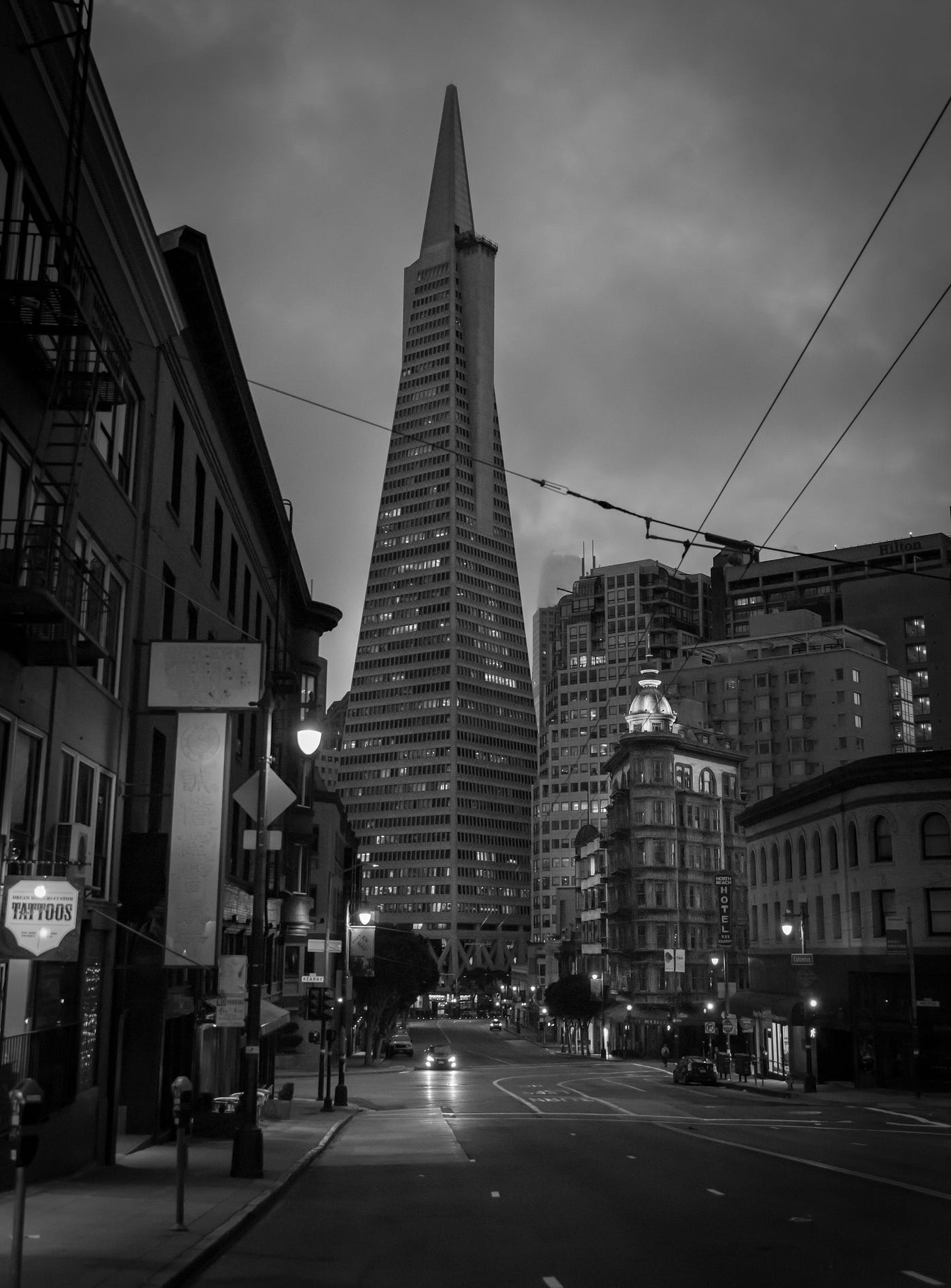
Launched by Eric “Big Daddy” Nord, who sold it to Enrico Banducci in 1951, the original hungry i (always lowercase “h” and “i”) was located at Columbus and Kearny in the basement of the Sentinel Building (later renamed the Columbus Tower), now largely occupied by Francis Ford Coppola’s film studio, American Zoetrope. According to one story, the lowercase “i” was meant to represent “intellectual,” or perhaps it was “id.” In 1954 the popular club was moved to the nearby International Hotel.
Closed in 1967, the venue launched the careers of many renowned comics and musicians. Lenny Bruce, Bill Cosby, Mort Sahl, Joan Rivers, Jonathan Winters, Barbara Streisand, Dick Cavett, Woody Allen, jazz pianist Vince Guaraldi and many folk-singing groups recorded their first albums here. Here is where in 1959 the perennially popular Kingston Trio recorded their version of the African folk song“The Lion Sleeps Tonight,”two years before the Tokens popularized its “Wimoweh” refrain.
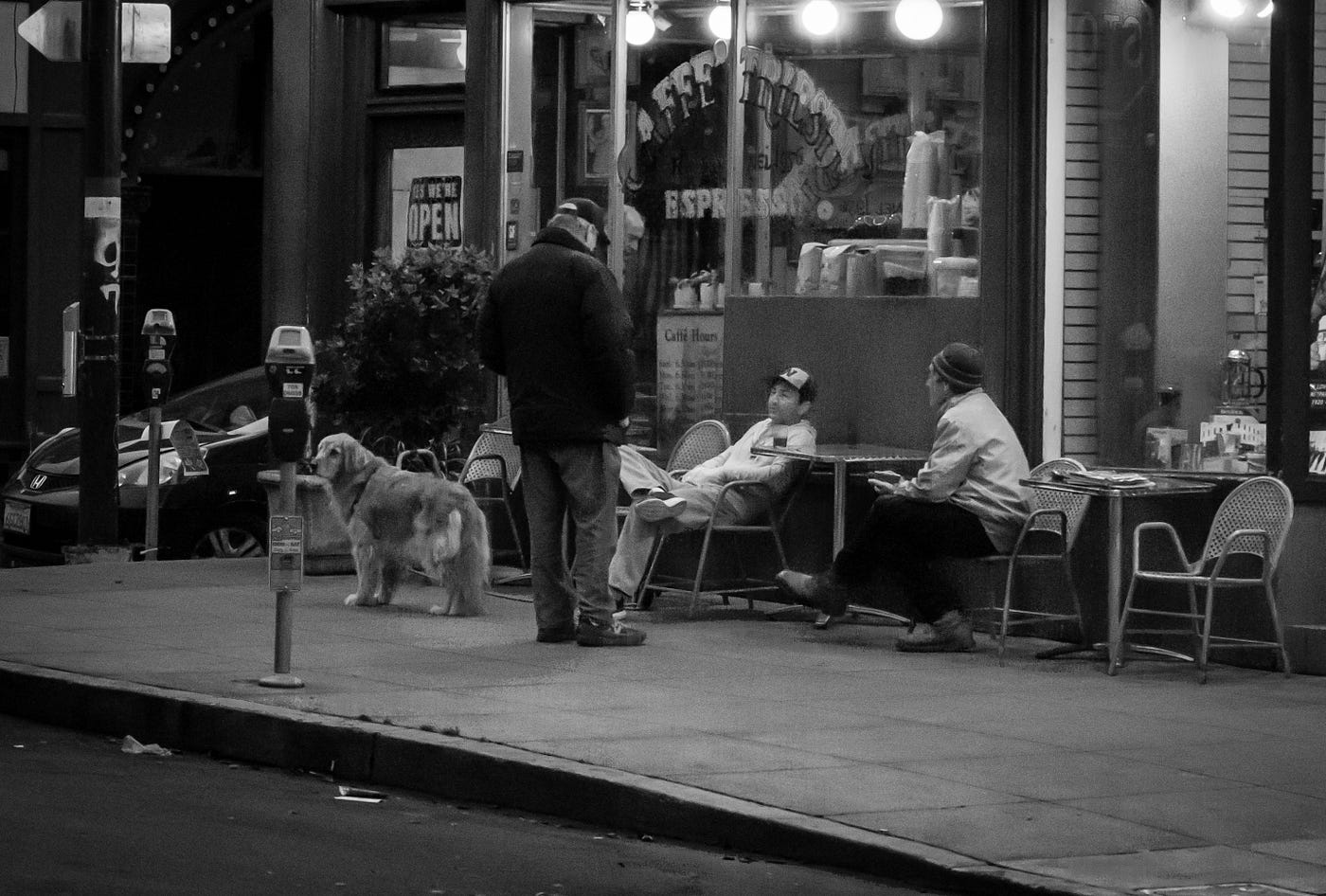
Early risers are milling around Caffe Trieste on Vallejo Street, eager to get their daily caffeine rush. Escaping the brisk morning air, a few regulars are already inside sipping frothy cappuccinos while an espresso machine hisses away.
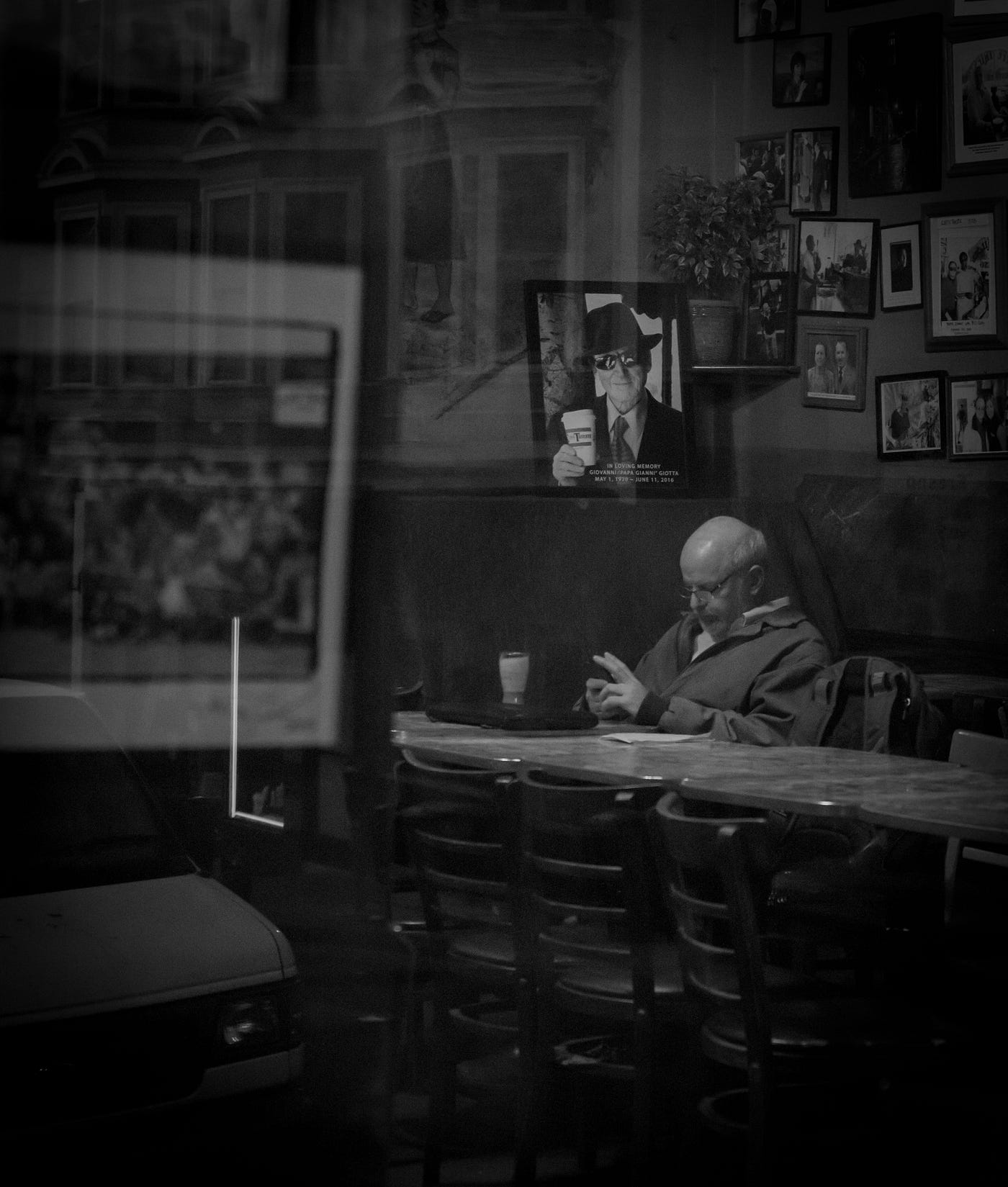
A lone patron ponders his cell phone. Behind him, the ghost of the cafe’s founder, Giovanni Giotta (a.k.a. “Papa Gianni”), smiles perennially through his Italian sunglasses.
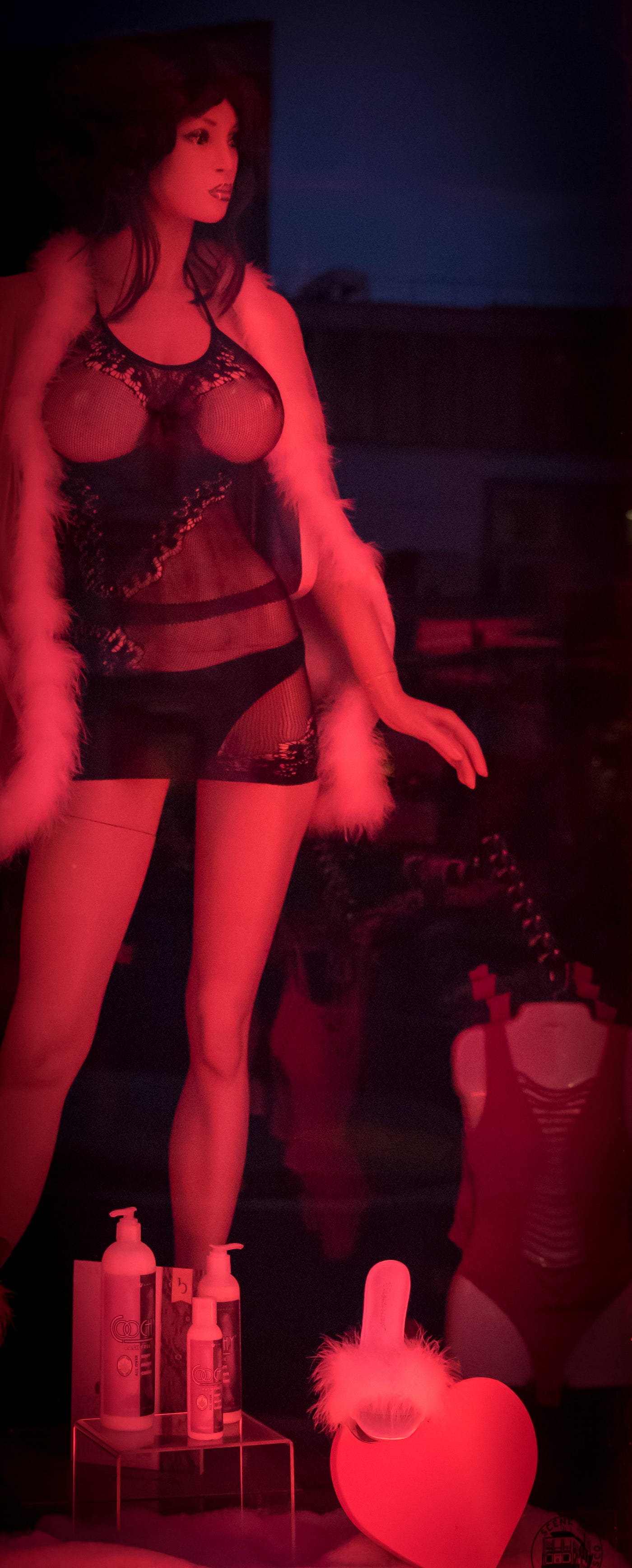
Nearby, above an empty parking lot, a Christian billboard provides a ghostly reminder: “After you die, you will meet God.” But no one cares, not even the sleepy sex dolls. It’s too early to wake up.



